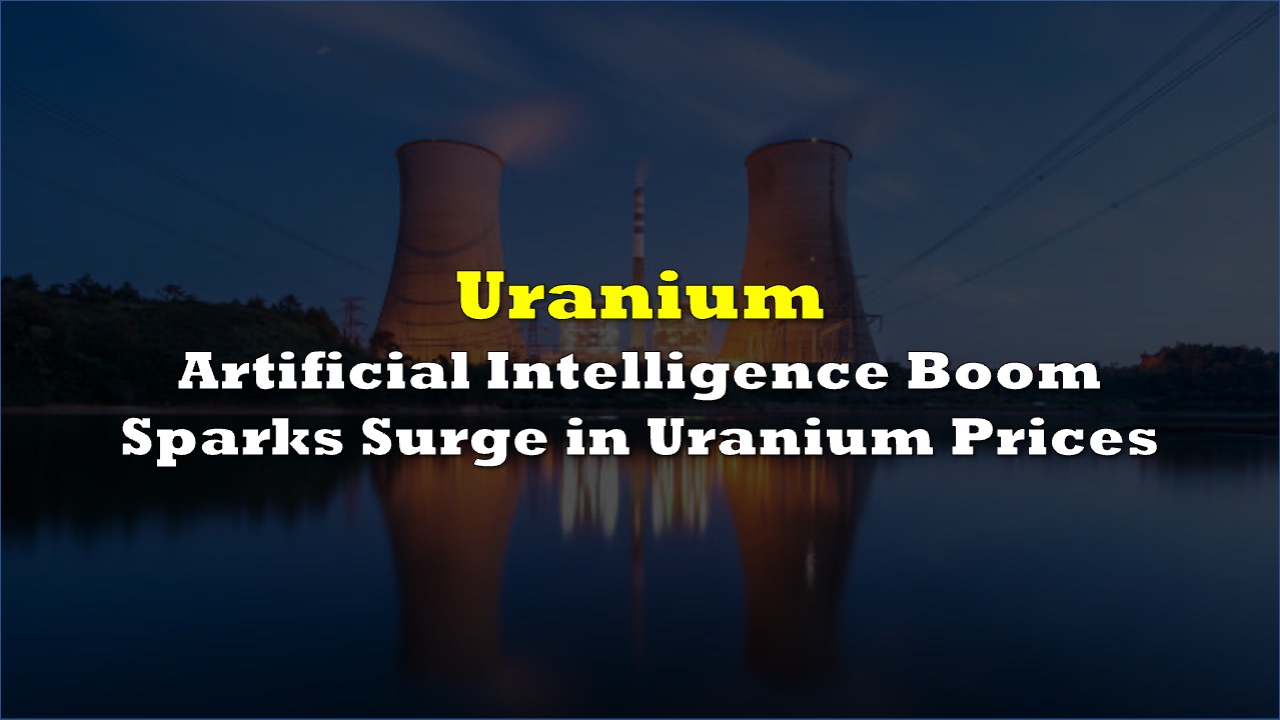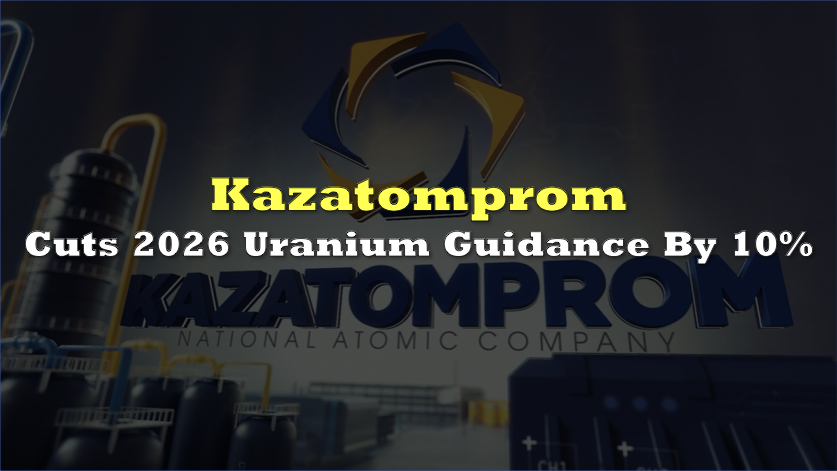The rise of generative artificial intelligence has mirrored a significant increase in uranium prices, as investors anticipate a surge in electricity demand driven by the technology’s widespread adoption. Over the past year, uranium prices have skyrocketed by 70%, outpacing gains in the benchmark semiconductor stock index.
The heightened interest in uranium is partially attributed to the expectation that nuclear power-related companies will benefit from the increased electricity consumption required to train and operate generative AI models.
💥#AI is the new #Uranium tailwind that very few of us saw coming.🌀⚛️🔌💻🤖 "AI investment boom extends to #Nuclear power generation and uranium – Servers to support tech's data appetite will increasingly run on atomic energy"⚡⚛️⛏️🤠🐂
— John Quakes (@quakes99) May 5, 2024
The success of this U bull market relies… pic.twitter.com/9Bj11a8MJy
Spot prices of refined uranium reached $106 per pound in February, a level not seen since the “nuclear renaissance” of 2007. Industry experts, such as Andre Liebenberg, CEO of Yellow Cake, believe that further price increases are inevitable as demand outpaces supply.
A recent report from Nikkei noted that Goldman Sachs (NYSE: GS) has expanded its presence by offering uranium options trading for hedge funds and holding substantial uranium inventories worth $356 million at its British trading subsidiary.
The generative AI boom has shifted the perception of uranium from a mere energy stock to one linked to the AI industry. Investors are closely monitoring the potential impact of AI on electricity demand and the business trends of major American technology companies with strong financial reserves.
As tech companies seek to secure electricity for their data centers while contributing to decarbonization efforts, nuclear power has emerged as an attractive option due to its ability to provide a constant baseload power. Microsoft, for example, has signed contracts to purchase nuclear power plant-generated electricity and is exploring the possibility of connecting data centers with small modular reactors (SMRs). OpenAI’s Sam Altman is also heavy on the SMRs.
But despite the optimism surrounding the nuclear renaissance, uncertainties remain regarding the feasibility and cost-effectiveness of new atomic plant projects. NuScale Power in January canceled its first SMR project due to rising construction costs.
Moreover, uranium’s tight supply and demand dynamics may lead to further price increases, potentially impacting the operation of nuclear power plants.
Information for this story was found via Bloomberg, Nikkei, and the sources and companies mentioned. The author has no securities or affiliations related to the organizations discussed. Not a recommendation to buy or sell. Always do additional research and consult a professional before purchasing a security. The author holds no licenses.









